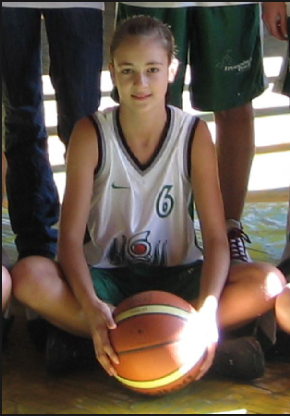Our approch to performance nutrition at Vibball includes
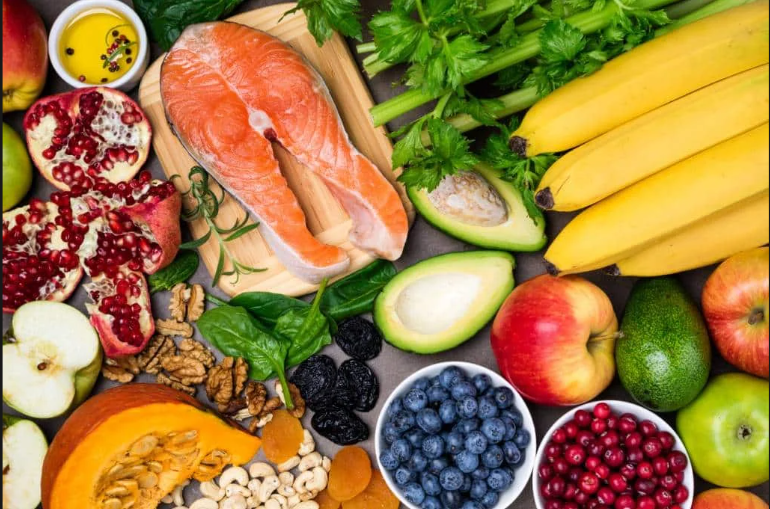
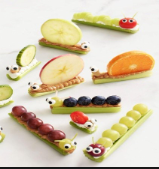 CARBOHYDRATES
Macronutrients are the main nutrients that make up the foods what we eat. These are: carbohydrates, proteins and fats. Carbohydrates are our body’s source of energy. Carbohydrate rich energy foods need to be eaten frequently each day as they provide much of the fuel needed to keep kids active and happy. Carbs keep blood sugar levels consistent, helping concentration during the day. Our body can only store a limited amount of carbs, that’s why it is important to have carbohydrate rich foods during each meal and snack. Carbohydrates should come from nutrient rich foods such as: grain, wholegrain, cereal, bread, legumes, fruit, vegetable and dairy products.
PROTEINS
Protein is mostly used in our body for growth and development. It is extremely important to make sure that junior basketball players have enough protein in their nutrition to optimize growth and development. The reason behind is that junior basketball players have higher protein needs than kids who are less active. It makes sense to include foods rich in both protein and carbohydrate as well as recovery snacks after training sessions.
FATS
All children require a small amount of fat (3-4 teaspoon) in their daily food intake, however children should include healthier unsaturated fats found in foods like nuts, seeds, avocado, fish for proper growth and development.
VITAMINS AND MINERALS
CARBOHYDRATES
Macronutrients are the main nutrients that make up the foods what we eat. These are: carbohydrates, proteins and fats. Carbohydrates are our body’s source of energy. Carbohydrate rich energy foods need to be eaten frequently each day as they provide much of the fuel needed to keep kids active and happy. Carbs keep blood sugar levels consistent, helping concentration during the day. Our body can only store a limited amount of carbs, that’s why it is important to have carbohydrate rich foods during each meal and snack. Carbohydrates should come from nutrient rich foods such as: grain, wholegrain, cereal, bread, legumes, fruit, vegetable and dairy products.
PROTEINS
Protein is mostly used in our body for growth and development. It is extremely important to make sure that junior basketball players have enough protein in their nutrition to optimize growth and development. The reason behind is that junior basketball players have higher protein needs than kids who are less active. It makes sense to include foods rich in both protein and carbohydrate as well as recovery snacks after training sessions.
FATS
All children require a small amount of fat (3-4 teaspoon) in their daily food intake, however children should include healthier unsaturated fats found in foods like nuts, seeds, avocado, fish for proper growth and development.
VITAMINS AND MINERALS
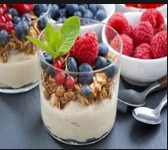 Adequate intake of vitamins and minerals is essential for good health, energy levels and good performance for all children. These micronutrients are found in fruits and vegetables, whole grains, dairy, meat, beans, and more. Eat a variety of food of all colours, shapes, and textures from each food group for the greatest benefit. Iron, zinc and calcium are particularly important for active, growing children. Iron is responsible for carrying oxygen around the body and is essential for maximizing energy levels. Low iron levels can cause tiredness and can affect performance at practices and games. The best sources of iron are lean red meats, liver and kidney. It is important to include a small amount of lean red meat in an active child’s diet around 3-4 times a week. Zinc is a mineral, that is important for immune function, wound healing, taste, smell, normal growth and development. A wide variety of food contains zinc, like lean red meat, poultry, beans, nuts, whole grains and seafood. Calcium in the mineral is responsible for healthy growth and development of bones. It also helps to keep the muscles working properly. Active children should be encouraged to consume at least 2-3 servings of dairy each day, like milk, yoghurt and reduced fat cheese.
HYDRATION
Fluid intake is just as important as food intake for the health and performance of junior athletes. Children can overheat and dehydrate quickly as they are not able to regulate their body temperature. Kids are generally not very motivated to employ good hydration habits, so it becomes the responsibility of parents and coaches to help them stay well hydrated during training and games.
Before training: It is really important that active children start drinking water well before(2-3 hours) they get to training or game. Junior basketball players should be encouraged to drink fluid with meals and snacks as well.
During training: Children should always have their own water bottle. Practising regular intake of small volumes frequently during training assists children to feel more comfortable drinking water during games. Remind children not to wait until they are very thirsty before they start to drink. Current advice is to drink small amounts frequently, in advance of game time, and avoid highly concentrated sugary or carbonated fluids.
After training: After exercise it is important to encourage kids to rest and have a larger drink. Suitable fluids for recovery include water, plain or flavoured milk or soup. Discourage junior athletes from having carbonated drinks (including soft drinks) before, during and immediately after exercise. Also it is not suitable for active children to drink cola, coffee or energy drinks.
NUTRITION
Adequate intake of vitamins and minerals is essential for good health, energy levels and good performance for all children. These micronutrients are found in fruits and vegetables, whole grains, dairy, meat, beans, and more. Eat a variety of food of all colours, shapes, and textures from each food group for the greatest benefit. Iron, zinc and calcium are particularly important for active, growing children. Iron is responsible for carrying oxygen around the body and is essential for maximizing energy levels. Low iron levels can cause tiredness and can affect performance at practices and games. The best sources of iron are lean red meats, liver and kidney. It is important to include a small amount of lean red meat in an active child’s diet around 3-4 times a week. Zinc is a mineral, that is important for immune function, wound healing, taste, smell, normal growth and development. A wide variety of food contains zinc, like lean red meat, poultry, beans, nuts, whole grains and seafood. Calcium in the mineral is responsible for healthy growth and development of bones. It also helps to keep the muscles working properly. Active children should be encouraged to consume at least 2-3 servings of dairy each day, like milk, yoghurt and reduced fat cheese.
HYDRATION
Fluid intake is just as important as food intake for the health and performance of junior athletes. Children can overheat and dehydrate quickly as they are not able to regulate their body temperature. Kids are generally not very motivated to employ good hydration habits, so it becomes the responsibility of parents and coaches to help them stay well hydrated during training and games.
Before training: It is really important that active children start drinking water well before(2-3 hours) they get to training or game. Junior basketball players should be encouraged to drink fluid with meals and snacks as well.
During training: Children should always have their own water bottle. Practising regular intake of small volumes frequently during training assists children to feel more comfortable drinking water during games. Remind children not to wait until they are very thirsty before they start to drink. Current advice is to drink small amounts frequently, in advance of game time, and avoid highly concentrated sugary or carbonated fluids.
After training: After exercise it is important to encourage kids to rest and have a larger drink. Suitable fluids for recovery include water, plain or flavoured milk or soup. Discourage junior athletes from having carbonated drinks (including soft drinks) before, during and immediately after exercise. Also it is not suitable for active children to drink cola, coffee or energy drinks.
NUTRITION
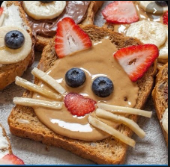 The day before the game: The day before requires extra effort to ensure an adequate amount of carbohydrate is eaten. The meal eaten in the evening is very important and should have a carbohydrate base such as pasta, rice, noodles or quinoa with a small serve of lean protein food.
On game day: Breakfast is essential to provide some carbs and fluid to top up stores, and to prevent hunger before, during the game. For mid-morning games, breakfast should be eaten around two hours before the game.For afternoon games you can include a larger breakfast and a pre-game lunch around two hours before the game starts. For evening trainings or games a larger afternoon snack could provide the pre-exercise meal. Carbohydrate rich snacks will help boost energy levels and prevent hunger for junior athletes. During the game the priority is to keep junior players well hydrated. Cool fluids need to be made available to all players during each game and it is important to drink small amounts of water frequently.
After the game: Recovery snacks and fluids should be consumed within 30-60 minutes after the end of exercise, that should be high in carbs with a little protein. The night after the game make sure your young basketball players keep drinking plenty of fluid until they are well hydrated again and then off to bed for a good sleep to allow tired muscles to recover.
TIPS AND RECOMMENDATIONS FOR BREAKFAST, LUNCH, DINNER AND SNACK IDEAS:
Breakfast: Carbohydrate rich foods: egg (scrambled, poached, boiled), wholemeal bread or tortilla, avocado, vegetables, lean chicken or turkey slices, low fat cheese, porridge with fruits, pancakes with fruit and yoghurt, cereal with milk, granola with yoghurt.
Snacks: Eat a light snack. Get some protein and carbs. Snacks should be brought from home and eaten during breaks between class or after school before practice. Don’t forget the water- stay hydrated during the day!
Examples: Almond or other nuts, banana or apple with peanut butter, hummus and veggies or crackers, whole grain fruit bar, fruit yoghurt, creamed rice with fruit, rice cakes.
Pre workout snacks: (eaten after school 1-2 hours before practice). Eat something light with a focus on protein and carbs.
Examples: Greek yoghurt with fruit and granola, apple with peanut butter, cottage cheese and fruit.
Post workout snacks: After a vigorous practice, it’s important to refuel with protein, carbohydrates, and fluid. This snack is optional if dinner is right after practice. If dinner is a few hours away, then try to add a snack.
Examples: Smoothie, chocolate milk, peanut butter toast, 100% juice with crackers.
Lunch: Chicken salad with wholemeal roll, vegetable soup, low fat cheese sandwich, wrap with chicken, tuna or egg with salad, rice, lean beef and vegetables.
Dinner: Should be eaten before sleep (2-3 hours)
Examples: Fish with brown rice and broccoli, chicken with baked sweet potato and broccoli, whole wheat pasta with lean meat and veggies, turkey burger and mixed vegetables, stir fry with lean meat, chicken wraps.
Fluid intake: Water, milk, flavoured milk, 100% juice, smoothie.
“Tell me what you eat and I will tell you what you are” – Jean Anthelme Brillat-Savarin
The day before the game: The day before requires extra effort to ensure an adequate amount of carbohydrate is eaten. The meal eaten in the evening is very important and should have a carbohydrate base such as pasta, rice, noodles or quinoa with a small serve of lean protein food.
On game day: Breakfast is essential to provide some carbs and fluid to top up stores, and to prevent hunger before, during the game. For mid-morning games, breakfast should be eaten around two hours before the game.For afternoon games you can include a larger breakfast and a pre-game lunch around two hours before the game starts. For evening trainings or games a larger afternoon snack could provide the pre-exercise meal. Carbohydrate rich snacks will help boost energy levels and prevent hunger for junior athletes. During the game the priority is to keep junior players well hydrated. Cool fluids need to be made available to all players during each game and it is important to drink small amounts of water frequently.
After the game: Recovery snacks and fluids should be consumed within 30-60 minutes after the end of exercise, that should be high in carbs with a little protein. The night after the game make sure your young basketball players keep drinking plenty of fluid until they are well hydrated again and then off to bed for a good sleep to allow tired muscles to recover.
TIPS AND RECOMMENDATIONS FOR BREAKFAST, LUNCH, DINNER AND SNACK IDEAS:
Breakfast: Carbohydrate rich foods: egg (scrambled, poached, boiled), wholemeal bread or tortilla, avocado, vegetables, lean chicken or turkey slices, low fat cheese, porridge with fruits, pancakes with fruit and yoghurt, cereal with milk, granola with yoghurt.
Snacks: Eat a light snack. Get some protein and carbs. Snacks should be brought from home and eaten during breaks between class or after school before practice. Don’t forget the water- stay hydrated during the day!
Examples: Almond or other nuts, banana or apple with peanut butter, hummus and veggies or crackers, whole grain fruit bar, fruit yoghurt, creamed rice with fruit, rice cakes.
Pre workout snacks: (eaten after school 1-2 hours before practice). Eat something light with a focus on protein and carbs.
Examples: Greek yoghurt with fruit and granola, apple with peanut butter, cottage cheese and fruit.
Post workout snacks: After a vigorous practice, it’s important to refuel with protein, carbohydrates, and fluid. This snack is optional if dinner is right after practice. If dinner is a few hours away, then try to add a snack.
Examples: Smoothie, chocolate milk, peanut butter toast, 100% juice with crackers.
Lunch: Chicken salad with wholemeal roll, vegetable soup, low fat cheese sandwich, wrap with chicken, tuna or egg with salad, rice, lean beef and vegetables.
Dinner: Should be eaten before sleep (2-3 hours)
Examples: Fish with brown rice and broccoli, chicken with baked sweet potato and broccoli, whole wheat pasta with lean meat and veggies, turkey burger and mixed vegetables, stir fry with lean meat, chicken wraps.
Fluid intake: Water, milk, flavoured milk, 100% juice, smoothie.
“Tell me what you eat and I will tell you what you are” – Jean Anthelme Brillat-Savarin 
